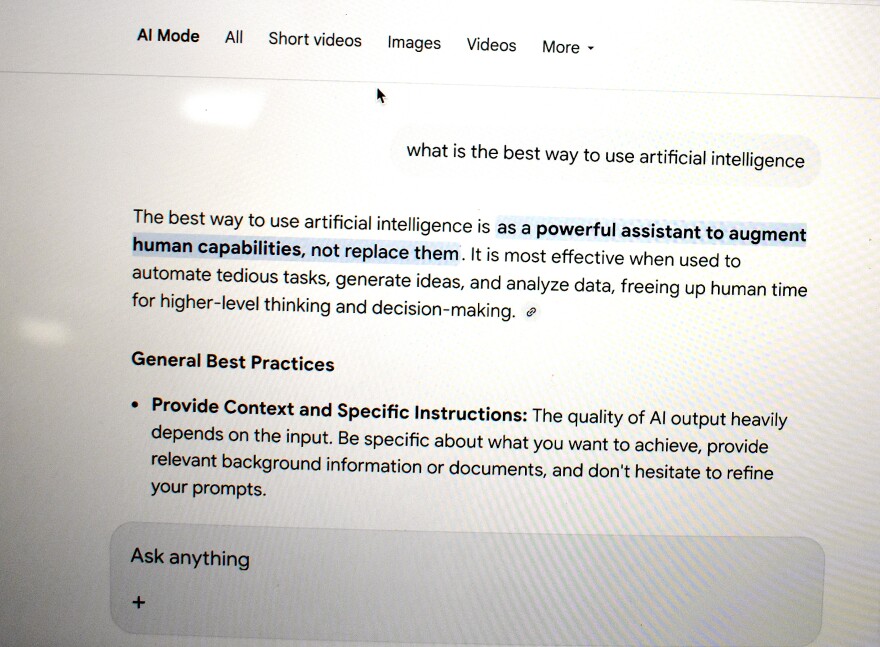On this week's Inland Journal, artificial intelligence in the classroom.
For many of us, Artificial intelligence, or AI, is a regular part of life. Most Google queries, for example, bring an answer from a chat bot. AI will likely play a greater role in our lives going forward. The technology is advancing so rapidly that its applications seem limitless. But there are worries about the ways humans will use the technology.
We talk with Gonzaga University Teacher Education Professor Anny Fritzen Case.
"I think generative AI offers at least a partial answer to at least two problems or large issues in education. One is that schools are increasingly tasked with a portfolio of responsibilities that really is beyond what a school or a teacher can be reasonably expected to do. So they are overburdened with responsibilities.
Secondly, teachers are working with very large groups of students who have wildly diverse learning needs, rich, diverse backgrounds. And so one size fits all education doesn't fit anyone actually. And so Gen AI has the potential to be a tool for teachers to make some of the work that they do more efficient and recoup some time for them to do the work that is fundamentally human."
We also talk with Jay Yang, director of Gonzaga's Institute for Informatics and Applied Technology.
"I think ultimately it's about empowering the teachers, empowering the humans to really develop the agency to reshape how we educate the next generation. What we wanted to do is not about teaching technologies. I would even say that it's not about every single teacher in the program must adopt AI technology. No. It was meant to be knowing this AI technology. How would you teach? What would you teach? How would you assess? How would you help kids learn? So empower teachers to reshape education."
Case and Yang have created a AI for Instruction Fellowship program for K-12 teachers to help them learn innovative ways to use AI in their teaching. The program is funded by the Gates Foundation.


